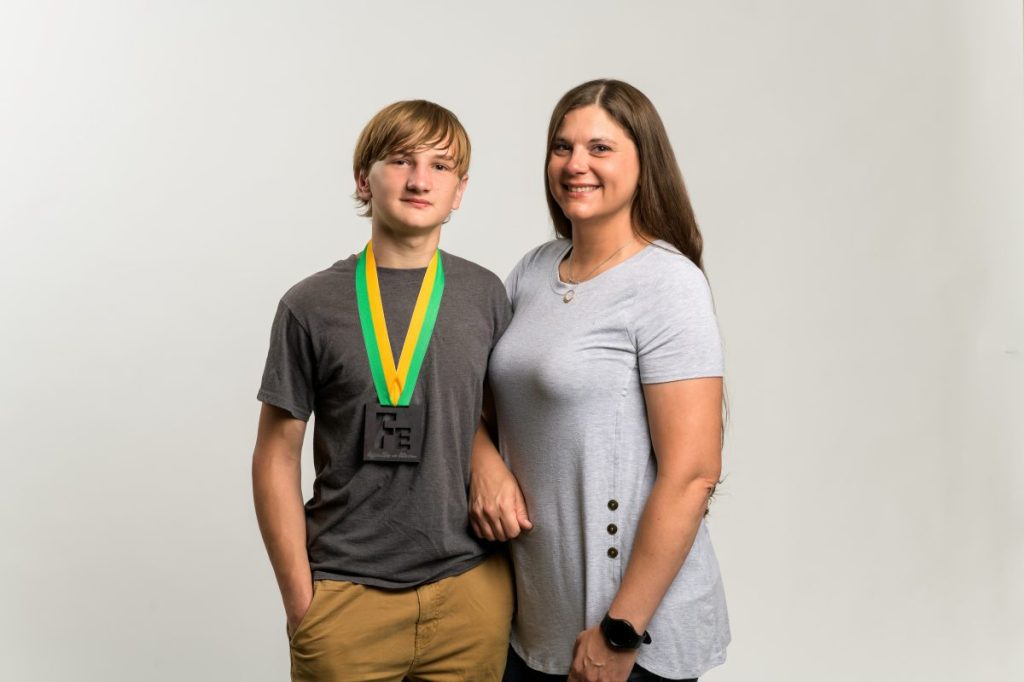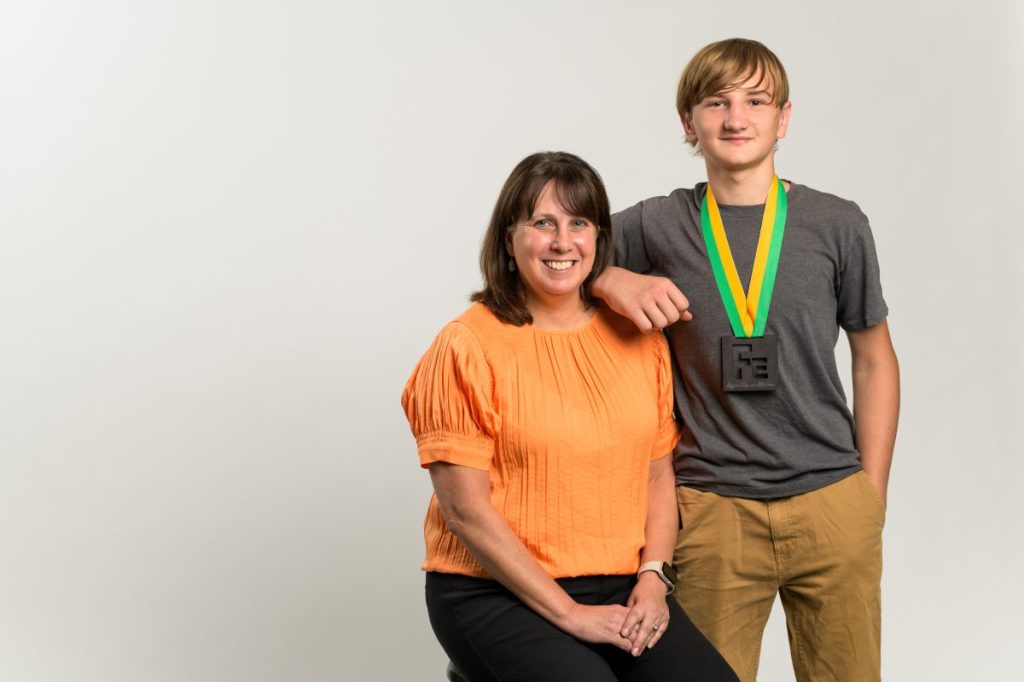
Hunter Creamer
A groundbreaking new cancer treatment that received FDA approval in 2016 came about partly because of Hunter Creamer’s participation in a clinical trial. Not that Hunter knew anything about it at the time. That’s because his involvement took place when he was only a year old.
Four days after his first birthday in 2010, Hunter was admitted to Children’s of Alabama with severe pain in his right leg. “He’d scream whenever you touched it,” says Hunter’s mother, Marilyn Casas. Testing revealed that he had neuroblastoma, a cancer that usually occurs only in children younger than age six.
While neuroblastoma is not uncommon, Hunter’s case was more severe than most. He had a tumor on his bladder and elements of the disease in his right femur, right pelvis and left adrenal. “He was really quite sick when we first saw him,” says UAB pediatric hematologist and medical oncologist Kimberly Whelan, M.D., MSPH.

Hunter underwent various treatments and procedures for more than a year. During that time, Casas agreed to enroll him in a clinical trial testing a new immunotherapy for neuroblastoma.
“I was willing to do anything to give Hunter a better chance,” Casas says. “And if it helped Hunter, and that gave another child a better chance, then we’d all be blessed.” That is exactly what happened. Hunter was declared cancer-free just a few months after his second birthday, and there has been no reoccurrence. He is now 15 years old, enjoys PlayStation and is looking forward to being able to drive. “He’s just a normal 15-year-old,” Casas says. “You wouldn’t know he went through so much.”
Meanwhile, the clinical trial that helped Hunter was so successful it was stopped sooner than planned, and the resulting immunotherapy, called Dinutuximab, was given FDA approval, making it the first approved immunotherapy specifically for pediatric cancer.

“There was a lot of excitement and celebration over that,” Whelan says. “And it would not have been possible without the families of these young patients like Hunter’s agreeing to go on a clinical trial.
“There used to be a tendency to treat pediatric cancer the same way as adult cancer, but we’ve learned that the cancers children face often are very different. These trials allow us to learn about these specific types of pediatric cancer and come up with treatments that can provide significant and sustained long-term improvements. That’s what happened in this trial.”
For her part, Casas says she – and Hunter – are pleased they were able to help, especially after all the help Hunter received in defeating his cancer.
“It was a nightmare year, but I wouldn’t have wanted to be anywhere else other than Children’s,” Casas says. “They were wonderful physicians, wonderful nurses. It was almost like having another family that cared about my child the way that I did.”


